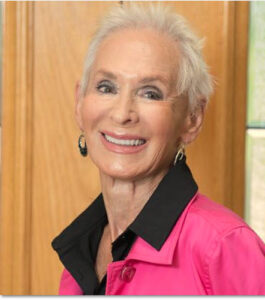

Every year, thousands of people reach their fifties and sixties and are designated “senior citizens.” For them, youth is gone, never to return. Their decline is inevitable, based on their chronological (calendar) age. Everybody declines, right? Wrong.
In his book “Lifespan,” author David A. Sinclair, Ph.D., asserts that aging is a disease that can be treated. He says, “I believe we can treat it within our lifetimes. And in doing so, I believe everything we know about human health will be fundamentally changed.”
Amen to that. Others and I believe it, but that belief will take some time (a lot of time) to mature and be universally accepted. But we are getting there.
The traditional retirement lifestyle is a significant contributor to the decline process because it emphasizes and promotes leisure as the preferred lifestyle that is decline-oriented. Understandably, retirees welcome that lifestyle because, after years of working, both mentally and physically, they are truly exhausted. They look forward to becoming part of a new “Alice in Wonderland” way of life, enjoyed by retired friends. What isn’t expected is the decline inherent in the usual retirement lifestyle. Few think about that.
Tradition and the established culture in which we all live put everyone into ten-year “age boxes” (the 40s, 50s, etc.). As time passes, each ten-year “age box” curtails personal and business opportunities due to “common knowledge” about the abilities of those in the “age box” they are in. Furthermore, those “age boxes” stress the value and importance of chronological age, which is nonsense. Calendar age does not determine mental or physical competence, yet our culture uses it to assess the competence of each human being in a specific “age box.”
In the 30’s, when Social Security began, people lived to about age 69, and age 60 was considered old. We need to eliminate the established belief that age 60 is old because it’s not. Many are now living to 100 and beyond.
If aging is a disease that can be cured (and it is being cured right now), we need to take a look at this article: “How long can a person live? The 21st century may see a record-breaker”. This research opens up a world of possibilities, suggesting that we could potentially live longer, healthier lives than ever before.
In the article, researchers claim someone will break the world record of age 122, with a strong likelihood of at least one person living anywhere between 125 and 132 years. But who wants to live that long if they are sick and dependent and just hanging on to life thanks to drugs that keep patients living longer, but not in a state that even comes close to optimum health?
Dr. David Sinclair also says, “When we stay healthy and vibrant, as long as we feel young physically and mentally, our age doesn’t matter.” That statement is supported in another Science Daily article, “Feeling younger buffers older adults from stress, protects against health decline.” In the article, researcher Marcus Wettstein says, “Messaging campaigns to counteract ageism and negative age stereotypes and promote a positive view of aging could make people feel younger.”
Feeling younger is fantastic, but that’s not the ultimate goal. The goal is to live to a maximum lifespan with the youthful health and vitality we had when younger. Yes, some of us are getting there, and that said, we may die tomorrow, but the signs are that we are on the right track.
A huge part of being on the right track is rejecting the nutritionally bankrupt traditional American diet that most people consume over a lifetime. It’s making us fat, clogging our arteries, dulling our brain, giving us diabetes, and other conditions most doctors don’t know how to treat because they did not study nutrition in medical school, because it’s not required. Our “health care system” is a misnomer. It’s not a system designed to preserve or promote health; it’s a system that treats disease. It’s misleading.
However, if you are interested in improving your health, a good place to start is by reducing your sugar intake. This isn’t easy, as many of us consume packaged foods that often contain large amounts of sugar. If you can’t give up the packaged junk, at least read labels. When an ingredient label lists sugar at the top, do not purchase the product.
You will want to read: Reducing sugar in packaged foods can prevent disease in millions. Here is the article summary:
“Cutting 20 percent of sugar from packaged foods and 40 percent from beverages could prevent 2.48 million cardiovascular disease events (such as strokes, heart attacks, cardiac arrests), 490,000 cardiovascular deaths, and 750,000 diabetes cases in the U.S. over the lifetime of the adult population, according to a new study.”
Engaging in exercise is critical, whether it’s working out on a Total Gym, walking outside, walking on a treadmill for 20 minutes daily, or riding a stationary bike. Use it or lose it.
Your health is YOUR responsibility, not the responsibility of your doctor or anyone else. Taking charge is not that difficult. If I can do it, you can do it, too. It sounds crude, but there are times when you have to be a badass about how you live your life, regardless of what anyone else is doing or telling you what to do. Remember, your choices today have the power to shape your health and future.
Love this, Barbara.! Living a long, healthy, vibrant life is largely within our control. It comes down to personal responsibility and research! Informed choices are the key. Thank you for being the example!